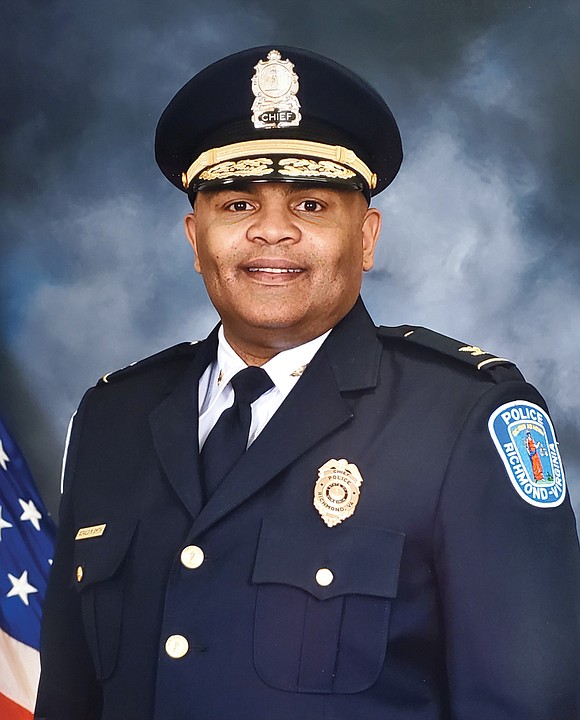City worker unionization efforts begin as police coalition calls for Chief Smith’s ouster
Jeremy M. Lazarus | 12/23/2021, 6 p.m.
Should City Hall follow the lead of the Richmond School Board and authorize its employees to organize and collectively bargain over wages and working conditions?
If so, should the city go big and allow bargaining units for all employees as 8th District City Councilwoman Reva M. Trammell is proposing?
Or should City Hall start small to test the idea, as Mayor Levar M. Stoney is proposing, by allowing union activity only among labor and trade employees ranging from plumbers to trash collectors working in the city Public Utilities and Public Works departments?
Those questions are now confronting City Council as the issue of employee unions hits their agenda with the introduction of separate ordinances by Ms. Trammell and Mayor Stoney.
Ms. Trammell’s ordinance would create various bargaining units to represent different kinds of employees, with a separate union allowed for each groupadministrative staff, professionals, police officers, firefighters and labor and trades personnel.
Ahead of that debate, City Council also is beginning to consider whether to support creation of a civilian review board to investigate complaints against officers and take control of discipline over the objections of Police Chief Gerald M. Smith.
Employee unionizing, which council is expected to take up in early February, also is emerging as Chief Smith faces blowback from a sizeable faction of his department over his leadership.
That blowback comes amid a spike in homicides, assaults and other violence, primarily in poorer sections of the city.
The 328-member Richmond Coalition of Police, which claims to represent the majority of the police department’s patrol officers, sergeants and lieutenants and strongly backs collective bargaining, called last week for Chief Smith to resign.
RCOP did so based on results from a survey of the group’s membership that found an overwhelming lack of confidence in Chief Smith’s leadership and his ability to lift already poor morale within the department.
While Chief Smith declined to comment, Mayor Stoney quickly declared his full support for the embattled police chief. Mayor Stoney hired Chief Smith from Charlotte, N.C., to take charge of Richmond Police on July 1, 2020, amid daily protests in the city against racial injustice and police brutality following the murder of George Floyd at the hands of Minneapolis Police.
The mayor dismissed RCOP’s call for Chief Smith’s resignation as “a cockamamie stunt” that was part of the organization’s lobbying for authority to become a full-blown union. This was the first time in RCOP’s 32 year-history that the organization has called for a chief’s ouster, RCOP President Brendan Leavy said.
A police department veteran himself, Officer Leavy expressed disappointment that the mayor had dismissed the concerns of hundreds of officers who are frustrated about low pay, feeling underappreciated and are increasingly concerned about a shrinking workforce that has increased the potential danger of their work.
Officer Leavy and RCOP Vice President Carl Scott issued RCOP’s call for Chief Smith to step down or be replaced at a Dec. 16 news conference in disclosing the results of the survey in which 261 members participated.
“We’re here today to report the rank-and-file members of RCOP have lost trust and confidence in the current chief’s ability to effectively lead,” said Officer Scott, a 16-year-veteran who serves as a pilot with the regional police aerial unit.
He said 250 of the respondents, or 96 percent, stated they lacked confidence in the chief’s leadership and 260 officers responded that he has not improved morale in the 17 months since becoming chief. According to the responses, morale is extremely low, with 232 officers, or 89 percent, stating they do not feel valued.
Officers Scott and Leavy indicated the results mirror findings from two previous surveys that RCOP conducted among members, but had not released.
Possibly the most concerning statistic was that 214 officers, or 82 percent, responded that they have given serious consideration to “resigning from the department” even if it means losing their pension, Officer Scott said.
Officially, the department is authorized to have 753 officers, including new recruits, but reportedly only has 624 sworn officers on the payroll, with fewer than 570 officers available for duty as a result of resignations and retirements, sickness, discipline, military service and a city freeze on hiring for some sworn positions.
According to RCOP, the manpower drain from the department is continuing, with at least six more officers expected to retire or resign in the coming weeks.
Richmond residents are experiencing longer waits for responses to calls for service and precincts are reporting fewer officers at roll calls to start shifts. Chief Smith has indicated that he might close one of the four precinct buildings to consolidate staff, the Free Press has been told, though the chief has not confirmed that information.
Pay has become one big reason the department is struggling to replace officers. Since 2020, Richmond officers have become the lowest paid in the region. Starting pay for police and firefighters trails neighboring departments by as much as $15,000 a year.
But morale issues are contributing. RCOP members regard Chief Smith as doing too little to push for better pay on their behalf. They also say he has failed to build relationships with rank-and-file officers, who continue to describe him as aloof and disconnected from those he commands.
Officer Leavy said RCOP has “reached out and sought to have a working relationship with the chief” to no avail.
Email requests for meetings with the chief and/or the mayor or Lincoln Saunders, the chief administrative officer, have been met with silence, the Free Press was told.
On the pay front, council has passed two resolutions directing the administration to implement a major pay increase for police and firefighters.
If that happens, it is still uncertain whether that would be enough to end the loss of manpower.







